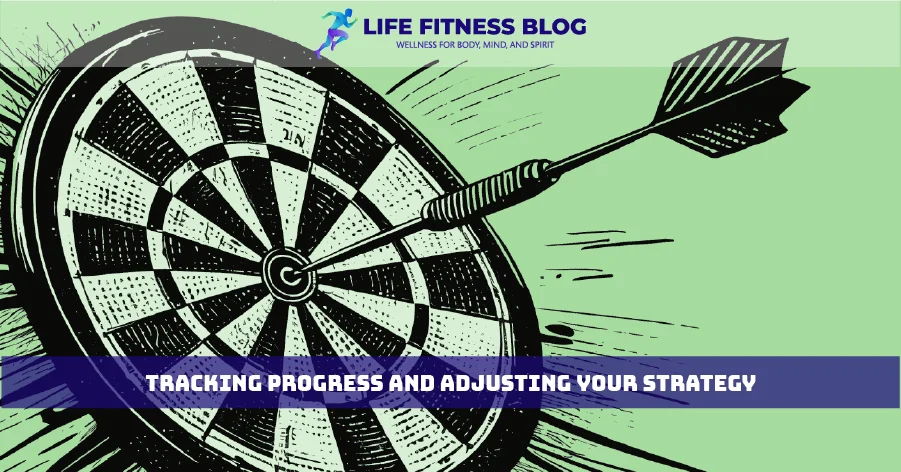Trying to gain weight with a fast metabolism can be tough. But, with the right approach, you can succeed. This guide offers practical tips to help you increase your body mass and boost your health.
If you’re an athlete, naturally slender, or have a high metabolism, this guide is for you. It will give you the tools to gain weight healthily. You’ll learn about your metabolism, create a meal plan, and find the right workouts.
Start your journey to gain weight with a fast metabolism. We’ll explore the best strategies to help you reach your goals and feel better overall.
Table of Contents
Understanding Fast Metabolism and Weight Gain Challenges
If you have a fast metabolism, gaining weight can be tough. Your body burns calories quickly, making it hard to gain weight. Knowing the signs, myths, and science behind metabolism is key to overcoming weight gain challenges.
Signs of Having a Fast Metabolism
- You tend to feel hungry more often than others.
- You can eat a lot without gaining weight.
- You have a high energy level and are generally active.
- You may have a hard time maintaining or gaining weight, even with a balanced diet.
Common Misconceptions About Fast Metabolism
Many think a fast metabolism lets you eat anything without gaining weight. But, this makes it hard to gain weight for fast metabolizers and overcome fast metabolism for weight gain. Another myth is that you can’t change your metabolism. But, with the right approach, you can influence it.
The Science Behind Metabolic Rate
Your metabolic rate is influenced by age, gender, muscle mass, and activity level. Genetics also plays a role. While some may naturally have a faster metabolism, you can still make changes to gain weight for fast metabolizers and overcome fast metabolism for weight gain.
| Factors Affecting Metabolic Rate | Impact on Metabolic Rate |
|---|---|
| Age | Metabolic rate tends to decrease with age. |
| Gender | Men generally have a higher metabolic rate than women. |
| Muscle Mass | Increased muscle mass can contribute to a higher metabolic rate. |
| Activity Level | Regular physical activity can boost metabolic rate. |
| Genetics | Genetic factors can influence an individual’s baseline metabolic rate. |

Calculating Your Daily Calorie Needs for Weight Gain
To gain weight with a fast metabolism, you need to understand the concept of caloric surplus. This means eating more calories than your body burns each day. First, calculate your basic metabolic rate (BMR). This is the minimum calories your body needs to function at rest.
Basic Metabolic Rate (BMR) Calculation
There are several formulas to estimate your BMR. A common one is the Mifflin-St Jeor equation:
- For men: BMR = (10 x weight in kg) + (6.25 x height in cm) – (5 x age in years) + 5
- For women: BMR = (10 x weight in kg) + (6.25 x height in cm) – (5 x age in years) – 161
Determining Your Caloric Surplus
After finding your BMR, you can figure out how many calories you need to eat to increase calorie intake for a fast metabolism. Aim for a calorie surplus of 300-500 calories daily to gain 0.5-1 pound per week. This amount can change based on your personal factors and goals.
Weekly Weight Gain Targets
A good weight gain plan is to aim for 0.5-1 pound of weight gain per week. This helps you build muscle without too much fat. You might need to slowly increase your calorie surplus for fast metabolism as your body gets used to eating more.
Remember, these numbers are just a starting point. You might need to adjust your calorie intake based on how your body responds and progresses. Keeping track and making changes is crucial for successfully gaining weight with a fast metabolism.
Strategic Meal Planning for Weight Gain
For those with a fast metabolism, planning meals is key to gaining weight. Focus on foods that are full of nutrients and calories. This way, you can make a diet plan that fits your body’s needs. Let’s look at the main points of a good diet for weight gain and a practical plan for fast metabolizers.
Calorie-Dense Meal Composition
When planning meals for weight gain, aim to eat more calories without losing health. Include a mix of:
- Protein-rich foods like lean meats, poultry, fish, eggs, and dairy products
- Complex carbohydrates such as whole grains, starchy vegetables, and legumes
- Healthy fats from sources like nuts, seeds, avocados, and olive oil
Make sure each meal has a mix of these ingredients. This helps with muscle growth and weight gain.
Optimizing Portion Sizes
For fast metabolizers, bigger meals are often needed. Start with larger portions and listen to your hunger. Don’t eat too much. Try adding calorie-rich toppings, sides, or snacks to your meals.
| Meal | Portion Size for Weight Gain |
|---|---|
| Breakfast | 2 eggs, 2 slices of whole-grain toast, 1 cup of oatmeal with milk, and 1 banana |
| Lunch | 6 oz grilled chicken, 1 cup of brown rice, 1 cup of roasted vegetables, and 1 avocado |
| Dinner | 8 oz salmon, 1 cup of quinoa, 1 cup of steamed broccoli, and 2 tablespoons of olive oil |
The goal is to balance calories with nutrition. This helps you gain weight while staying healthy.
Best Foods for Gaining Weight With High Metabolism
It’s tough to gain weight with a fast metabolism, but the right foods can help. You can bulk up with a fast metabolism or just want to gain weight healthily. This section will show you the best foods to help you.
Nutrient-Dense Food Options
When you want to gain weight, eat foods rich in nutrients. Look for foods with protein, complex carbs, and healthy fats. Here are some good choices:
- Lean meats like chicken, turkey, and lean beef
- Fatty fish such as salmon, tuna, and mackerel
- Whole grains like quinoa, brown rice, and oats
- Nuts and nut butter
- Avocados
- Eggs
- Potatoes and sweet potatoes
High-Calorie Healthy Foods
Also, add high-calorie but healthy foods to your diet. These foods help you gain weight:
- Dried fruits and trail mixes
- Full-fat dairy products like milk, yogurt, and cheese
- Nut and seed butter
- Smoothies made with protein powder, nut butter, and fruits
- Healthy oils like olive oil, coconut oil, and avocado oil
Strategic Snacking Choices
Snacking often can help you eat more calories. Here are some good snack ideas:
| Snack | Calories |
|---|---|
| Greek yogurt with granola and berries | 300 calories |
| Peanut butter and banana on whole-grain toast | 350 calories |
| Roasted chickpeas with olive oil and sea salt | 240 calories |
| Hummus with carrot and cucumber sticks | 200 calories |
By eating these foods, you can support your healthy weight gain strategies and bulking up with a fast metabolism.

Optimal Meal Timing and Frequency
To gain weight with a fast metabolism, you need to plan your meals carefully. This includes when and how often you eat. Understanding the best times and amounts can help you get the most from your diet.
Eating larger, more substantial meals is a good strategy. This way, you can take in more calories at once. It’s better than snacking all day, which can be hard for those with fast metabolisms. Try to have 4-6 meals a day, every 3-4 hours, to keep your metabolism high and your body fueled.
It’s also important to time your meals with your workouts. Eating a nutrient-dense, high-calorie meal or shake before and after working out helps. It gives your body the energy and nutrients it needs to grow muscle.
- Eat larger, more substantial meals throughout the day (4-6 meals per day)
- Space meals every 3-4 hours to keep your metabolism active
- Consume a nutrient-dense, high-calorie meal or shake before and after your workouts
By using these fast metabolism weight gain tips and a smart nutrition plan for fast metabolizers, you can improve your meal timing. This will help you reach your weight gain goals more effectively.
Strength Training for Muscle Mass Development
If you want to bulk up with a fast metabolism, strength training is key. Focus on compound exercises, work out often, and use progressive overload. This will help you grow muscle effectively.
Essential Compound Exercises
For muscle gains, choose compound exercises that work many muscles at once. Squats, deadlifts, bench presses, pull-ups, and overhead presses are great. These exercises boost strength and help grow muscles by releasing important hormones.
Workout Frequency and Recovery
Building muscle with a fast metabolism needs the right workout and rest balance. Do 3-4 strength training sessions a week. This lets your muscles recover and get stronger.
Progressive Overload Techniques
- Slowly add more weight, reps, or sets to keep challenging your muscles and promoting growth.
- Try different rep ranges to target various muscle fibers.
- Use drop sets, supersets, and eccentric training to boost muscle development.
By using these strength training methods, you’ll be on your way to the muscle mass you want. You’ll reach your healthy weight gain goals too.
Supplements for Supporting Weight Gain
If you’re having trouble gaining weight because of a fast metabolism, the right supplements can help. Protein powders and mass gainers can give your body the extra calories and nutrients it needs. They support weight gain and muscle growth. Let’s look at some top choices.
Protein Powders
Protein is key for building and fixing muscle, which is vital for weight gain. Choose high-quality protein powders like whey, casein, or plant-based options. They help you meet your daily protein needs and support your weight gain diet for high metabolism.
Mass Gainers
Mass gainers are special supplements that offer lots of calories, protein, and carbs. They help you increase calorie intake for a fast metabolism. These powdered shakes are a great way to add calories to your diet, making them a useful tool for weight gain.
Creatine
Creatine is a proven supplement that boosts muscle growth and performance during workouts. It supports your exercises and helps with muscle recovery. Creatine is a great addition to your weight gain diet for high metabolism.
While supplements are helpful, a balanced diet with nutrient-rich foods should be your main focus. Talk to a healthcare professional to create a personalized supplement plan. It should match your specific needs and goals.
- You May Also Like: What Supplement Is Best for Muscle Growth
Tracking Progress and Adjusting Your Strategy
Keeping an eye on your progress is key when trying to gain weight with a fast metabolism. By tracking your body composition and strength, you can tweak your plan for better results. This ensures you keep moving forward.
Get a good scale and body composition analyzer to watch your weight and muscle. Keep a log of your weekly measurements. Also, notice how your clothes fit and any changes in your look. These signs can show how you’re doing.
Remember, gaining weight and muscle takes time, especially with a fast metabolism. Check your diet and workouts often. Be ready to change them if needed. With hard work and the right plan, you can beat your fast metabolism and gain the weight you want.

FAQs
How can I gain weight without gaining fat?
To gain weight without gaining fat, focus on a diet rich in protein and complex carbohydrates. Strength training is also crucial for building muscle mass. Avoid excessive intake of processed foods and sugary drinks.
What are some healthy snacks for weight gain?
Good snack options for weight gain include nuts, seeds, nut butter, dried fruits, yogurt, granola, and protein bars. These snacks are packed with calories and nutrients to support your weight gain goals.
How can I increase my appetite to gain weight?
To increase your appetite, try eating smaller, more frequent meals throughout the day. Focus on nutrient-dense foods that are satisfying and filling. Additionally, staying hydrated can help regulate your appetite.
Is it possible to change my metabolism?
While you can’t drastically change your metabolism, you can influence it through diet, exercise, and lifestyle choices. Building muscle mass, getting enough sleep, and managing stress can all contribute to a higher metabolic rate.
What are some common mistakes people make when trying to gain weight?
Common mistakes include not eating enough calories, not eating enough frequently, and not prioritizing strength training. It’s also important to avoid unhealthy habits like excessive junk food consumption and sedentary lifestyle.




